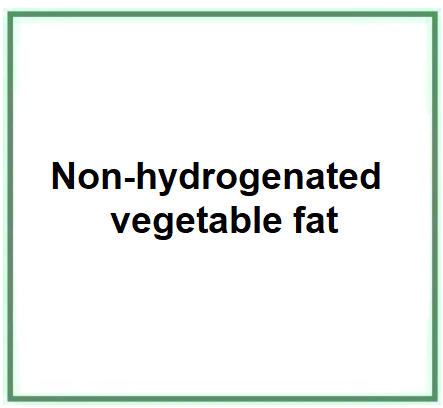![]() Non hydrogenated vegetable fat
Non hydrogenated vegetable fat
Rating : 5.8
By non hydrogenated vegetable fat is meant a vegetable fat that has not undergone the chemical procedure of hydrogenation with which a partially saturated and more ductile fat is obtained in the food field as it is less perishable and less expensive.Non hydrogenated vegetable fat refers to vegetable oils that have not undergone the hydrogenation pr... (Read the full Tiiip)
7 pts from Ottika11
| Evaluate | Where is this found? |
| "Non hydrogenated vegetable fat stu" about Non hydrogenated vegetable fat Review Consensus 7 by Ottika11 (2062 pt) | 2019-May-29 19:06 |
Evaluation of poly(90% biscyanopropyl/10% cyanopropylphenyl siloxane) capillary columns for the gas chromatographic quantification of trans fatty acids in non-hydrogenated vegetable oils.Delmonte P.J ...
| Read the full Tiiip | (Send your comment) |
| "Descrizione" about Non hydrogenated vegetable fat Review Consensus 7 by Ottika11 (2062 pt) | 2023-Oct-08 16:57 |
By non hydrogenated vegetable fat is meant a vegetable fat that has not undergone the chemical procedure of hydrogenation with which a partially saturated and more ductile fat is obtained in the food ...
| Read the full Tiiip | (Send your comment) |
Read other Tiiips about this object in __Italiano (2)
Component type: Natural Main substances: Last update: 2019-05-29 19:07:54 | Chemical Risk: |


